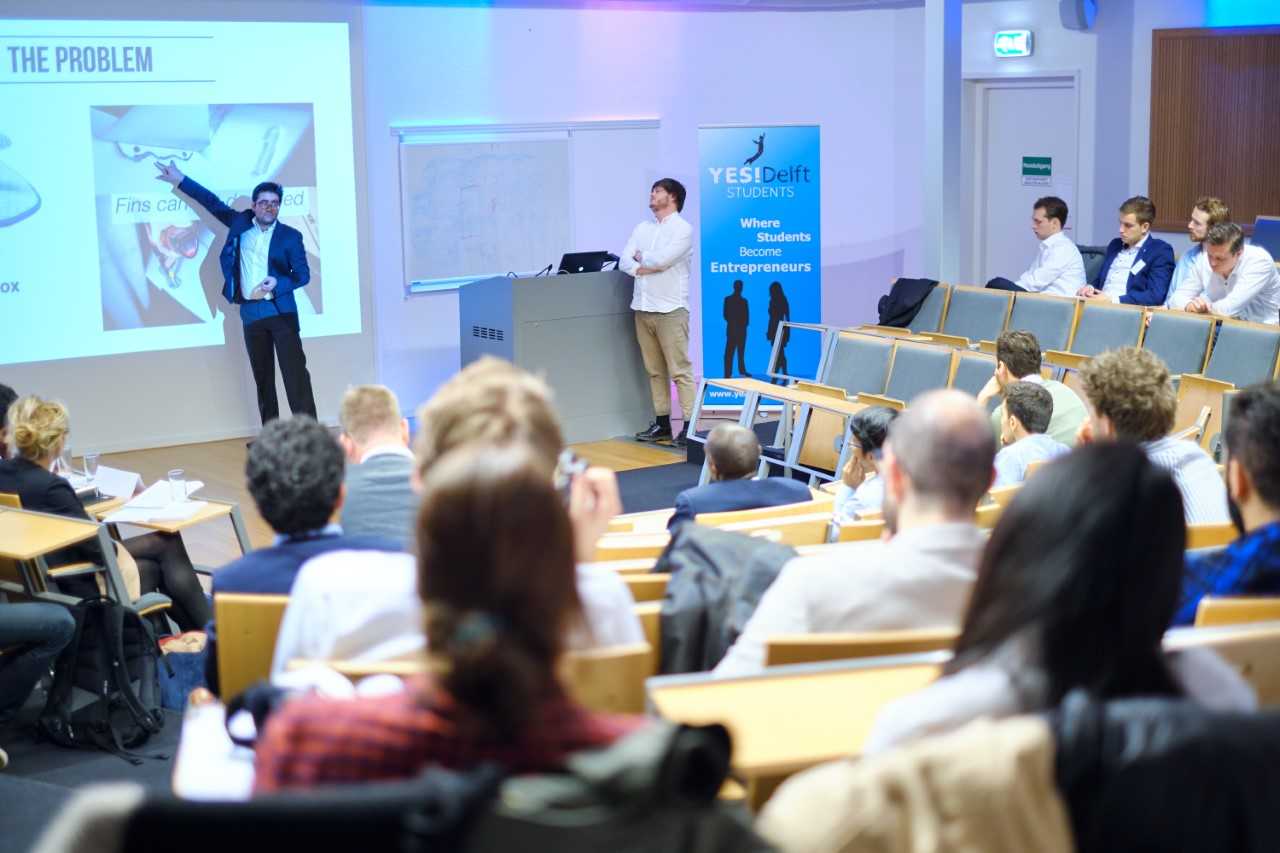Are you thinking about becoming an entrepreneur? Delta spoke to three students who just finished the ‘Turning Technology into Business’ course about what they learned. Thursday 22 February the final presentations of the seven best groups will be held in front of an expert jury.
TTiB presentatie 2017 (Photo: Thomas Koopman)
TTIB is a Delft Centre of Entrepreneurship course in which students learn how to bring a new technology to the commercial market. The students form multidisciplinary groups and choose a new technology, often a patent from TU Delft, as a case study. Dap Hartmann, module manager of the course, feels that the multidisciplinary character of the teams is one of the strengths of the programme. The groups then research the patent’s practical applications, whether there is a market for it and, if there is, how exactly to take it there. The course’s main question is: what strategy is most likely to generate business for this patent? “An important thing the students learn is that an idea is only good if there are people who want to have it,” says Hartmann.
In the end, the students write an end report with their analysis and recommendations, and give a ten minute presentation. Today, the final presentations of the seven best groups will be held in front of an expert jury, with subjects varying from complicated new algorithms to nanobubbles with applications for an innovative face wash.
Tips for entrepreneurs
Lina Afriana (master management and technology), John O’Reilly (3mE) and Marta Scali (PhD biomechanical engineering) all participated in this year’s course and their groups will present their findings this afternoon. They shared the following tips for students who might want to become entrepreneurs in the future.
- Be open-minded and flexible
Afriana: “As students, we sometimes think that everything will go according to plan, and then it does not turn out as smoothly as we think.” It is important as entrepreneurs to be able to bounce back after something goes differently than planned, and try to learn as much you can from ‘failure’”. - Invest time in market research
Both Hartmann and Afriana emphasise this point. “We can develop the greatest technology ever made, but if no-one wants to use or buy our product, it will be meaningless.” The course encourages students to step out of the ‘academic’ detail-oriented world and do research with real people to find out what they want and need. - Consider all applications of your technology
The DryHydrant group’s patent for a polymer that can store large quantities of water is an example of a technology that has multiple, very different applications. The polymer can be used in the production of adult diapers, but also in floriculture. So it is worth spending time to find other uses for your technology. - Find your drive
“You need to find that drive and passion for your idea. Entrepreneurship is very challenging, so you should not do it just because you do not know what else to do. Of course, you should have passion for everything you do, but it goes especially for this,” emphasises Scali.



Comments are closed.